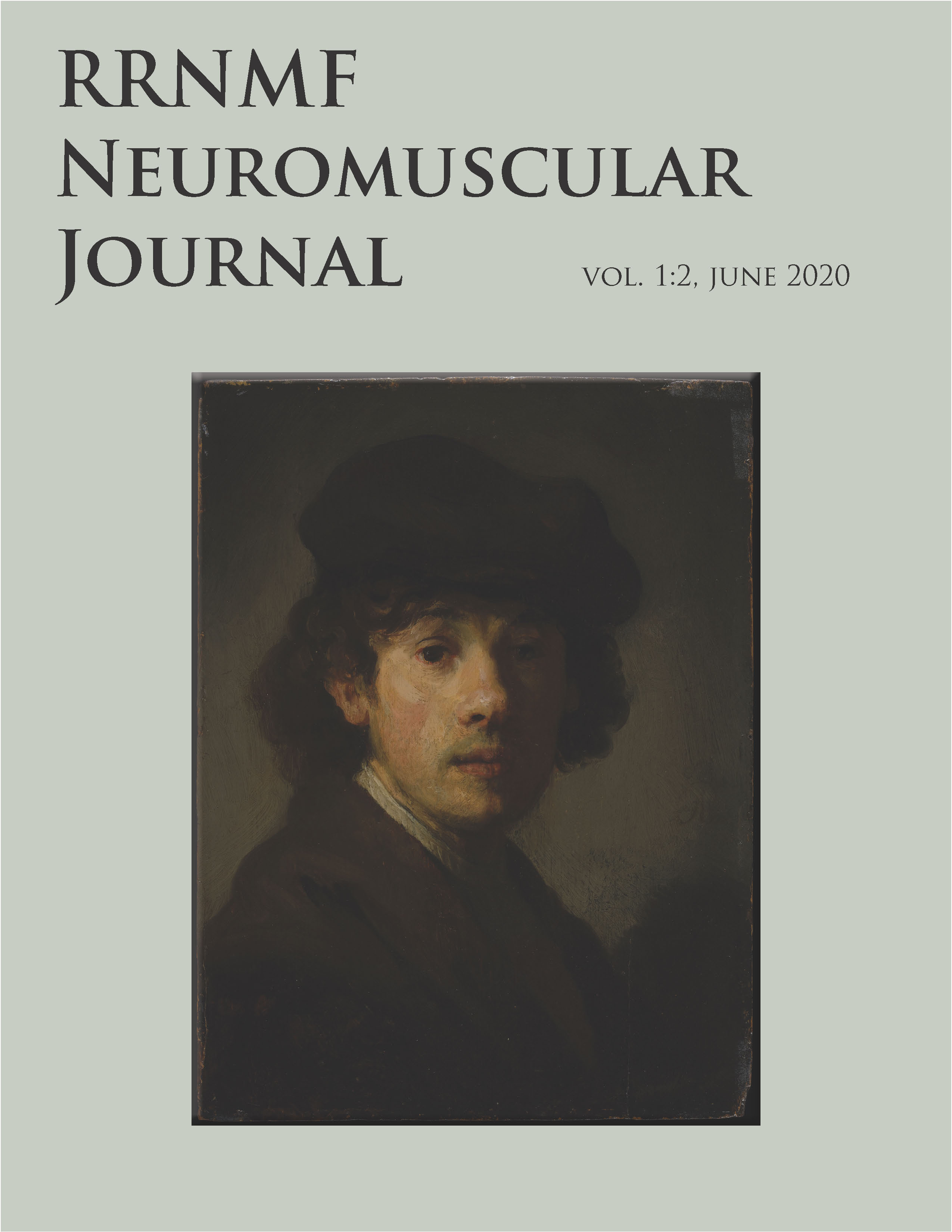Clinical Experience of Edaravone in Amyotrophic Lateral Sclerosis
DOI:
https://doi.org/10.17161/rrnmf.v1i2.13554Keywords:
ALS, edaravone, adverse effectsAbstract
Objective:
To describe clinical experience with edaravone in ALS over a period of 12 months
Methods:
The current study retrospectively investigated characteristics in a group of patients (n=31) with ALS who underwent edaravone treatment. Information including age, gender, race, and site of onset of symptoms were collected for all patients. Adverse events with edaravone therapy was documented where available.
Results:
The average age of the patients observed was 62.09 years, with 18 males and 13 females. 18 patients had limb onset, 12 bulbar onset, and 1 diaphragmatic onset. 7 of the 31 patients discontinued treatment at the end of one year. The average age of patients who discontinued edaravone was 65.71 years, of whom which 3 had limb onset, 3 bulbar onset, and 1 diaphragmatic onset. No perceived benefit, port complications, systemic bacteremia, and development of atrial fibrillation were documented as reasons for discontinuation of therapy.
Conclusion:
Edaravone is well tolerated in ALS patients at the end of one year. Lack of perceived benefit and port related complications are common reasons for discontinuation of treatment
Downloads
Downloads
Published
Issue
Section
License
Copyright (c) 2020 Raghav Govindarajan, Alexis Peters , Tejas Mehta

This work is licensed under a Creative Commons Attribution-NonCommercial-NoDerivatives 4.0 International License.

